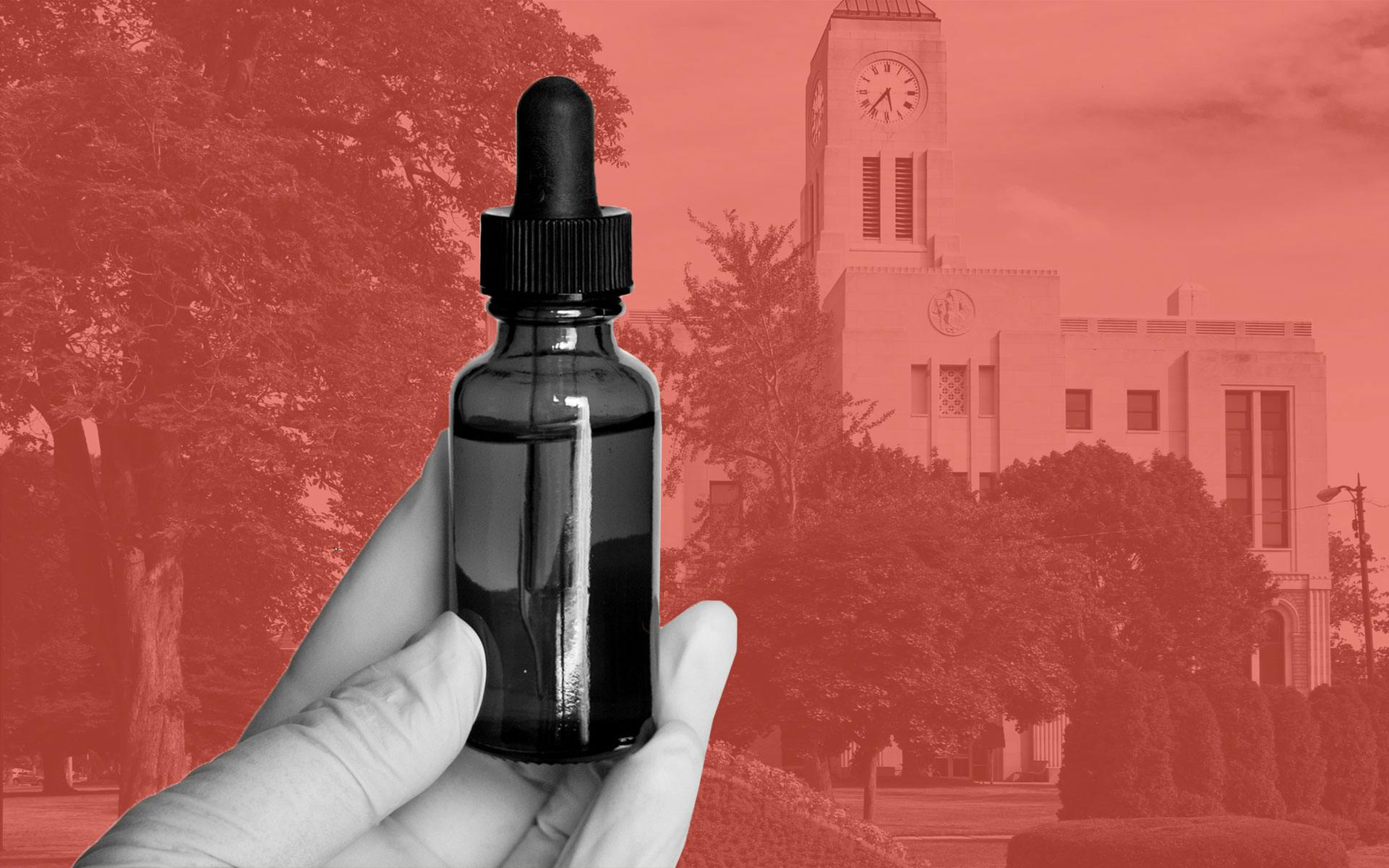Is marijuana legal in Ohio?
Current legality status
Recreational
Cannabis is legal for qualified patients with a licensed card.
Recreational cannabis and medical marijuana are both legal in Ohio. The state allows adult-use cannabis as well as medical marijuana use for qualifying patients.
What’s going on with adult-use cannabis in Ohio?
On November 7, 2023, Ohio voted to legalize recreational cannabis, via Issue 2. The measure passed with 57% of the vote.
Recreational sales begin August 6, 2024. Here are the top strains in Ohio to buy.

Legal marijuana possession and homegrow
As of December 6, 2023, adults in Ohio can possess up to 2.5 ounces of cannabis and 15 grams of cannabis concentrate.
Additionally, Ohioans can now legally grow up to six plants per person at home, with a maximum of 12 plants per household.
Take note, Leafly Nation: Public consumption of marijuana remains illegal in Ohio.
Licenses arrive Aug. 6, 2024, but not everywhere in Ohio
Go visit the Leafly weed dispensary map of Ohio and look for “Rec” stores to see which ones are near you.
Issue 2 allows cities and localities to delay or opt-out of marijuana sales. Many have already chosen to do so. Our advice: Keep an eye on your local newspaper or city council to track the status of adult-use marijuana where you live in Ohio.
Ohio’s existing 120-odd medical marijuana dispensaries will get the first crack at selling adult-use cannabis. In early August, the state issued roughly 90 adult-use operations licenses.
Will Ohio tax marijuana purchases?
Yes. Per Issue 2, Ohio will add a 10% excise tax to dispensary sales, in addition to a separate statewide 5.75% sales tax and a local tax of up to 2.25%. So a $10 sack becomes almost a $12 dollar sack.
Will Ohio allow for automatic expungement of past marijuana offenses?
Ohio law allows for the expungement of past minor marijuana offenses, but the process is not automatic. The state is currently mulling changes to use cannabis tax revenue to expedite the expungement process.
One quick note on decriminalization in Ohio
Okay, this one’s a tad confusing: Ohio began to decriminalize cannabis all the way back in the mid-1970s. Prior to the state’s 2023 legalization vote, the possession of up to 100 grams is treated as a minor misdemeanor punishable by a $150 fine across the state. Now, the possession of up to 70 grams (2.5 ounces) is fully legal. As far as we can suss out, possession between 70 and 100grams remains subject to the aforementioned fine.
Ohio medical marijuana laws
Medical marijuana patients are able to purchase amounts set by the state, from what is known as an “Ohio tenth”—2.83 grams, which the state has determined to be an appropriate daily dose of marijuana—to a 90-day supply. Once a patient purchases a 90-day supply—such as 8 ounces of Tier 1 flower or less than 6 ounces of higher THC potency Tier 2 weed—they cannot purchase more cannabis from a dispensary until the next 90-day period begins.
As Marijuana Moment reports, as of March 4, 2024, medical patients and caregivers will only pay a one cent annual renewal fee.
Medical marijuana patients, or their caregivers, may purchase the following in a single visit:
No less than one of the following, each referred to as a “whole day unit”:
- 2.83 grams, otherwise known as “the Ohio tenth”
- 110 milligrams of THC in oil, tincture, capsule, or edible (50 milligrams per edible)
- 295 milligrams of THC in patch, lotion, cream, or ointment form
- 590 milligrams of THC in oil for vaporization
No more than one of the following, which the state considers a 90-day supply:
- 8 ounces of Tier 1 flower, which is weed with a THC content of 23% or less
- 5 and 1/10 ounces of Tier 2 flower, which has a THC content of between 23% and 35%
- 26 and 55/100 grams of THC content in patches for transdermal use or in lotions, creams and ointments
- 9 and 9/10 grams of THC content in oil, tincture, capsule or edible form of medical marijuana, which is to be consumed orally
- 53 and 1/10 grams of THC content in medical marijuana oil for vaporization
Ohio medical marijuana bills
HB 523 was passed by the state legislature and signed into law by Gov. John Kasich in 2016, a year after a ballot measure that would have legalized recreational use failed at the polls.
Qualifying conditions for medical marijuana
Qualifying as a medical marijuana patient in Ohio requires having conditions specifically named by the state, including:
- AIDS
- Amyotrophic lateral sclerosis/ Lou Gehrig’s disease
- Alzheimer’s disease
- Cachexia, wasting syndrome
- Chronic, severe or intractable pain
- Cancer
- Chronic traumatic encephalopathy
- Crohn’s disease
- Epilepsy or other seizure disorders
- Fibromyalgia
- Glaucoma
- Hepatitis C
- Inflammatory bowel disease (IBD)
- Multiple sclerosis
- Parkinson’s disease
- HIV-positive status
- Post-traumatic stress disorder (PTSD)
- Sickle cell anemia
- Spinal cord injury or disease
- Tourette syndrome
- Traumatic brain injury (TBI)
- Ulcerative colitis
How to get a medical marijuana card in Ohio
Any Ohio resident with a qualifying medical condition can receive a registration card. And unlike some states, there is no minimum age requirement, but potential patients under 18 must be accompanied by a parent or guardian.
- Collect your medical records proving you have a qualifying condition. You can request these documents directly from your doctor or specialist’s office by filling out a patient access form.
- Visit a medical marijuana clinic in the state and bring your records with you. A doctor at the clinic will review your medical history and perform an exam. Note: Given the COVID-19 pandemic, some are providing telemedicine options so people can apply for a registration card completely online. Sites like ohiomarijuanacard.com are doing exams by video conference.
- In the state application, include a government-issued ID card and the doctor’s written recommendation.
- Pay a state-mandated fee. Again, as of March 4, 2024, that fee will shrink to one cent for patients and caregivers alike.
- Once an application is approved by the Ohio Board of Pharmacy, the patient is enrolled into the state’s registry.
Note: The Health Insurance Portability and Accountability Act of 1996 gives every American the right to view and obtain their medical records. If you’re nervous about saying you’re requesting the records to get medical marijuana, you can just tell your doctor’s office it’s for personal reasons.
Does Ohio accept out-of-state medical marijuana cards?
No, Ohio does not allow use of medical marijuana cards issued by other states.
When does my Ohio medical marijuana card expire?
In Ohio, medical marijuana cards last just one year and then must be renewed.
Ohio marijuana growing laws
As of December 2023, adults in Ohio can legally grow up to six plants per person at home, with a maximum of 12 plants per household.
Ohio public consumption laws
The state does not allow public consumption of cannabis.
Ohio cannabis DUI laws
It is illegal to operate a vehicle if one has marijuana in their system in the following amounts:
| Substance | Urine | Blood |
| Marijuana | 10 ng/mL | 2 ng/mL |
| Marijuana metabolite | 35 ng/mL | 50 ng/mL |
| Marijuana metabolite with other drugs/alcohol | 15 ng/mL | 5 ng/mL |
Although a prescribed medicine can be a valid defense against prosecution for a DUI, a doctor’s recommendation given to receive a medical card in Ohio is not a prescription, according to state law.
A first-time DUI is considered a first-degree misdemeanor and holds a mandatory minimum of three days in jail, with up to six months behind bars possible, as well as an intervention program. The offender must also pay a fine of $375-$1,075 and will have their license suspended for six months to three years. With each weed DUI thereafter, fines increase and so does possible jail time.
While a third offense within 10 years is still considered a misdemeanor, a fourth and fifth offense within 20 years is a fourth-degree felony.
Meanwhile, a sixth offense is a third-degree felony. Fourth, fifth and sixth offenses are all punishable by up to five years’ imprisonment, criminal forfeiture of the offender’s vehicle, up to a $10,500 fine and revocation of one’s driver’s license—possibly indefinitely or for life.
Any person is guilty of a DUI if they are driving under the influence of an intoxicating controlled substance. Ohio’s DUI law specifically names cocaine, heroin, alcohol, marijuana, LSD, amphetamine, phencyclidine as prohibited substances when it comes to driving.
Ohio cannabis testing regulations
The stringent nature of Ohio’s medical marijuana law extends to its handling of testing. Weed being distributed to a licensed dispensary must be tested for possible foreign matter contamination, moisture content, microbial contamination, pesticide and fertilizer residue, heavy metal contamination, and CBD and THC levels as well as at least a dozen other categories of elements and contaminants.
Still, the state had to recall three medical marijuana products in late 2019, not long after legal sales first began. The recalled marijuana had failed independent lab tests for yeast, mold, and other microbial contaminants, an Ohio Department of Commerce spokeswoman told The Cincinnati Enquirer.
Here’s how Ohio’s marijuana lab testing works and what it tests for.

Common questions about marijuana legalization in Ohio
When did Ohio legalize medical marijuana?
Gov. John Kasich signed HB 523, which legalized medical cannabis, in 2016. But it took another three years for dispensaries to start selling to patients.
What is a “Ohio tenth”?
In place of the traditional eighth-ounce is the Ohio tenth—one-tenth an ounce of weed, or about 2.83 grams. Medical marijuana in licensed dispensaries are sold in this unique amount, which state law describes as a “whole day unit.”
Can you get fired for marijuana use even if you are a registered patient legally consuming it for medical reasons?
In short, it sounds like the answer could be yes. Ohio’s medical marijuana law makes it clear it does not promise certain protections for patients. For one, the legislation does not require employers to waive a zero-tolerance drug policy—even if an employee is a state-registered patient legally using cannabis to treat a qualified medical condition.
How old do you have to be to be registered as a medical marijuana patient?
There is no minimum age requirement. However, patients under the age of 18 must have a parent or guardian accompany them through the application process, including the doctor’s visit.
Learn more about marijuana legalization in Ohio
Here are some additional resources, news, and references for Ohio marijuana policy.
Keep up with the latest news about legalization in Ohio
Stay current on Ohio’s fast-changing laws by bookmarking Leafly politics and signing up for our newsletter.
Post last updated Sept. 5, 2020
By providing us with your email address, you agree to Leafly's Terms of Service and Privacy Policy.

